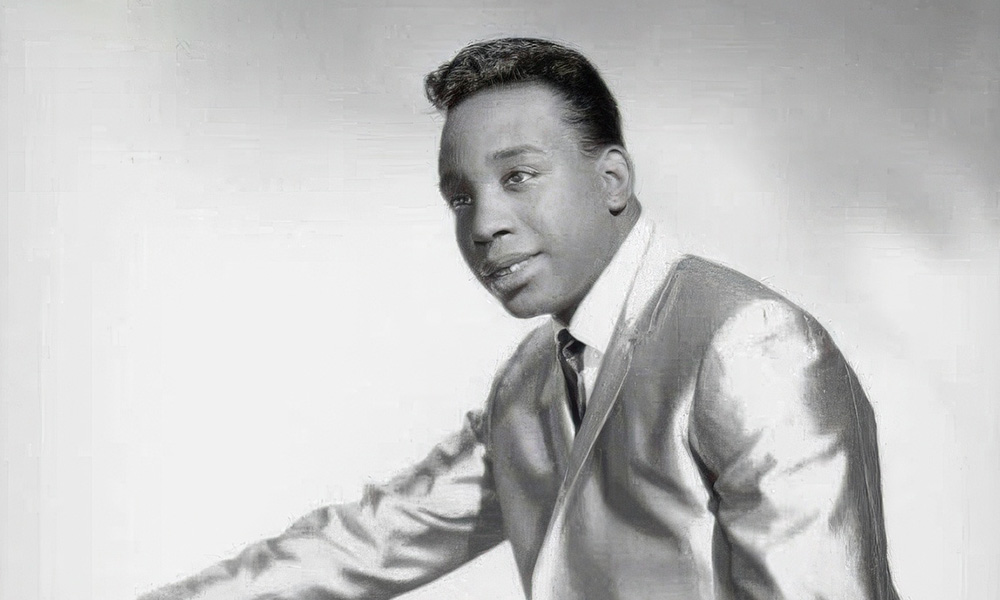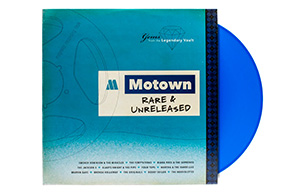Frank Wilson
Frank Wilson’s recording of “Do I Love You (Indeed I Do)” spawned one of Motown’s – and music’s – great mysteries. Unreleased at first, it would eventually become a cult sensation years after his work as a songwriter and producer earned him a lasting place in Hitsville lore.
FAST FACTS:
- First Hit: “Do I Love You (Indeed I Do)”
- Biggest Hit: “Do I Love You (Indeed I Do)”
- Biggest Album: Eddie Kendricks, featuring the No. 1 smash “Keep On Truckin’”
- Career Highlight: Although he would win acclaim for writing and producing massive hit songs by major secular artists and received accolades for supervising major gospel recordings, Wilson himself ranked “Do I Love You (Indeed I Do)” – a song that he recorded for Motown but remained officially unreleased for 14 years –among his top professional accomplishments.
- Texas-born Frank Wilson moves to Los Angeles as an 18-year-old in 1958 and becomes a gospel singer with the Angelaires. But after hearing local singer Brenda Holloway, Wilson decides on a career in secular music as a singer and composer and releases singles under both his own name and a variety of pseudonyms, including Sonny Daye, Eddie Wilson and Chester St. Anthony.
- He befriends songwriters/producers Hal Davis and Marc Gordon and when Berry Gordy Jr asks them to open a West Coast branch of Motown Records, Wilson is asked to join them. He becomes integral to the operation by writing, producing and cutting demo vocals for the material that Motown’s West Coast artists – including Holloway, her sister Patrice and Chris Clark – record in Los Angeles.
- In 1965, with Davis and Gordon producing, Wilson records “Do I Love You (Indeed I Do),” intended as his first Motown single. Promotional copies are pressed in November but, shortly before release, Wilson travels to Detroit and meets with Gordy. The boss is enthusiastic but Wilson hears a pointed question: “Do you truly want a performing career, which this will give you, or do you want to be a writer and producer?”
- When Wilson tells Gordy the latter, the release is canceled. Almost all the promo copies are destroyed, save for two kept in office files. For years, the song is forgotten – although the backing track survives, and Chris Clark overdubs her vocal on it. Her version, too, is cancelled.
- Focusing on producing and writing, Wilson relocates to Detroit in 1966 where he soon writes and produces the Miracles’ exhilarating “Whole Lot Of Shakin’ In My Heart (Since I Met You).” He goes on to work with every top Motown act over time, overseeing such landmark projects as the historic Diana Ross & the Supremes Meets The Temptations LP and its monster hit single, “I’m Gonna Make You Love Me;” the iconic Temptations album, In A Mellow Mood, and the group’s hit single “All I Need;” the Four Tops’ thematic Still Waters album, which helps inspire Marvin Gaye’s What’s Going On; and the Supremes’ first albums in the post-Diana Ross era. Wilson finds his producing and songwriting stride working with Eddie Kendricks on the former Temptation’s first six solo albums, with the hits “Keep On Truckin’,” “Boogie Down” and “Shoeshine Boy” among the highlights.
- In the late ‘70s, with the British Northern Soul scene booming by spotlighting rare and unknown recordings, a collector somehow comes into possession of one of the two original remaining 45s of “Do I Love You (Indeed I Do).” He bootlegs Wilson’s single and releases it in 1977, crediting a West Coast singer named Eddie Foster with being the artist to hide the song’s true identity. The mystery track becomes wildly popular and fills the dance floors in Great Britain.
- Truth finally outs a year later. Eventually Tamla Motown in Great Britain releases a proper version of Wilson’s single in 1979. “Frank Wilson had finally got his first solo commercial release as a Motown artist,” writes music historian Andy Rix in 2009, “although at the time he knew nothing about it.”
- Wilson’s “Do I Love You (Indeed I Do)” is subsequently re-issued on 45 in the U.K. with Clark’s version on the B-side in 2004. It is issued in a stereo mix on a U.K. CD compilation called This is Northern Soul! on Debutante Records in 1997 – two years after a newly- discovered alternate vocal version comes out on a U.S. CD compilation called The Sound Of Young America -1966. The original mono single mix finally appears on Volume 5 of The Complete Motown Singles collection in 2006.
- Having left Motown and returning to Los Angeles in 1976, Wilson briefly continues to produce R&B artists, among them Lenny Williams, whose Wilson-produced ballad “’Cause I Love You” would prove a perennial for ABC Records. He then embarks on a career in the ministry, writing books and producing gospel music – the field in which he began his music career. Among the gospel artists he produces are the Mighty Clouds of Joy who win a GRAMMY® for Best Soul Gospel Performance, Traditional for their album Changing Times in 1979. But, as Frank Wilson would tell Rix, he always considered “Do I Love You (Indeed I Do)” to be “one of my life’s greatest achievements.”














